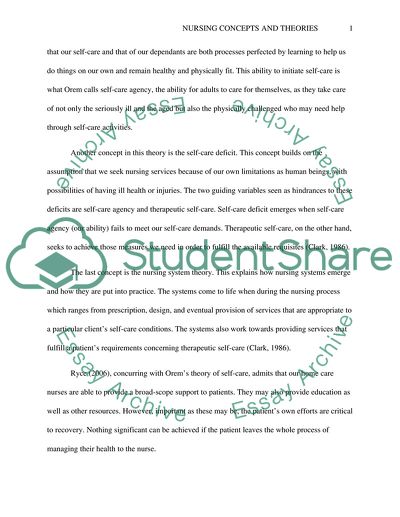Cite this document
(“Nursing Concepts: Dorothea Orems Self-Care Deficit Nursing Theory Essay”, n.d.)
Retrieved from https://studentshare.org/nursing/1437249-nursing-concepts-dorothea-orems-self-care-deficit-nursing-theory
Retrieved from https://studentshare.org/nursing/1437249-nursing-concepts-dorothea-orems-self-care-deficit-nursing-theory
(Nursing Concepts: Dorothea Orems Self-Care Deficit Nursing Theory Essay)
https://studentshare.org/nursing/1437249-nursing-concepts-dorothea-orems-self-care-deficit-nursing-theory.
https://studentshare.org/nursing/1437249-nursing-concepts-dorothea-orems-self-care-deficit-nursing-theory.
“Nursing Concepts: Dorothea Orems Self-Care Deficit Nursing Theory Essay”, n.d. https://studentshare.org/nursing/1437249-nursing-concepts-dorothea-orems-self-care-deficit-nursing-theory.


